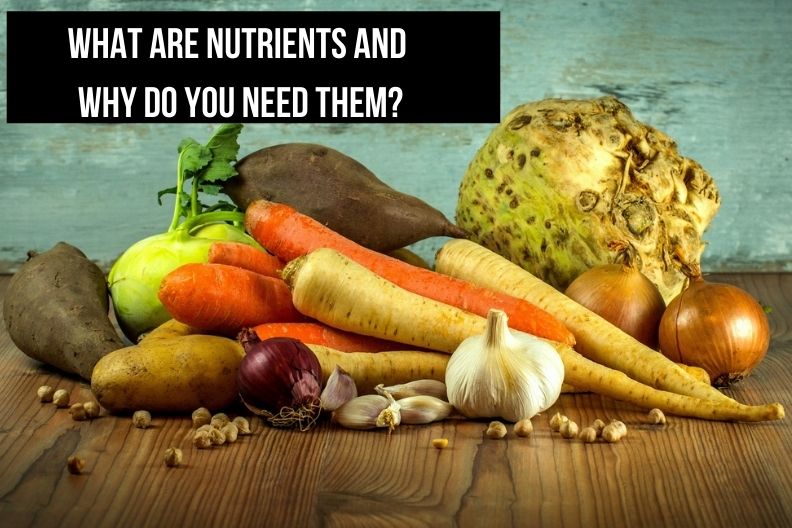What are Nutrients and Why Do You Need Them?
This post contains affiliate links. This means I will make a commission at no extra cost to you should you click through and make a purchase. Read the full disclosure here.
Do you ever feel like your brain is so full of thoughts that it’s amazing you can find time to do anything? I know that I start my morning with a bunch of thoughts in my head that I either need to take care of or they’ll be my undoing for the rest of the day. I feel like they’re usually my to-do list items, but my brain also needs some food, too. That’s where nutrient-dense foods come in. You might be asking “what are they?” And if you are, you’ve come to the right place. In this article, I will dive into the role of nutrition in our body and more.
Table of Contents
The Functions of Nutrients
There are three main functions of nutrients in our body. They build and repair body tissues, Regulate all Body Processes and provide us with energy.
These basic functions allow us to detect and respond to environmental surroundings, move, excrete wastes, respire (breathe), grow, and reproduce.
Build and Repair Body Tissues
Your body is made up of billions of cells. From before you are born until you die, cells divide. Each time a cell divides, it produces two new cells. These new cells account for your growth. New cells are also used to repair damaged body tissues and to replace old cells. All cells are formed with materials that come from food. Therefore, your body needs adequate amounts of nutrients to help make new cells.
Nutrient needs during periods of rapid growth are greater than at any other time. Such periods include the prenatal period, infancy, and adolescence. Lacking adequate nutrition during periods of growth may affect a person’s physical size, strength, and health. His or her learning abilities and behavior patterns could be affected, too.
Every cell in your body contains genes. Genes carry hereditary information you received from your parents. Height, gender, and other details that are yours alone are on a genetic blueprint. However, good nutrition is necessary if you are to reach your full genetic potential. In other words, if your parents are tall, they may have passed along genes allowing you to become tall, too. However, your body needs nutrients to grow. If your diet does not provide these nutrients, you will not grow to your full height potential.
Regulate all Body Processes
The second function of nutrients is to keep body processes running smoothly. For instance, the circulation of body fluids requires a balance of essential nutrients. Maintaining the correct acid-base level in the blood is a function of nutrients. Digestion, absorption, and metabolism are all processes that rely on proper amounts of nutrients.
The chemical reactions that control body processes are complex. However, these reactions normally work well. You will not usually need to think about which foods cause which chemical reactions. Instead, you need only focus on eating a nutritious diet. This will ensure you are getting the nutrients you need to help your organs and tissues work properly.
Provide Energy
A third key function of nutrients is to provide energy. Food is to your body what gasoline is to a car. It is a source of energy for performance. The quality of the food you eat affects how well your body will run. Energy is necessary for all life processes to occur. Your body needs the energy to breathe, pump blood, move muscles, and provide heat. You need energy every day. If you go without food too long, your body will not have the energy needed to operate vital organs. The more active you are, the more energy you need to meet the physical demands placed on your body.
Chemical reactions that take place in your cells release energy from the nutrients you get from food. Carbohydrates and fats are the two main nutrients used for energy. Proteins may also be used, but the body prefers to save proteins for other vital functions. Vitamins, minerals, and water do not provide energy. However, the body needs these nutrients to help regulate the release of energy from carbohydrates, fats, and proteins. If just one nutrient is missing from the diet, energy release will be hampered.
Conclusion
Nutrients are the life force or energy within foods. In other words, they are the compounds in each food that our bodies use and need to keep going. The full extent of nutrients and their functions is beyond the scope of this short article, but it’s critical that you understand what they are present in your diet if you want to live a healthy lifestyle.







